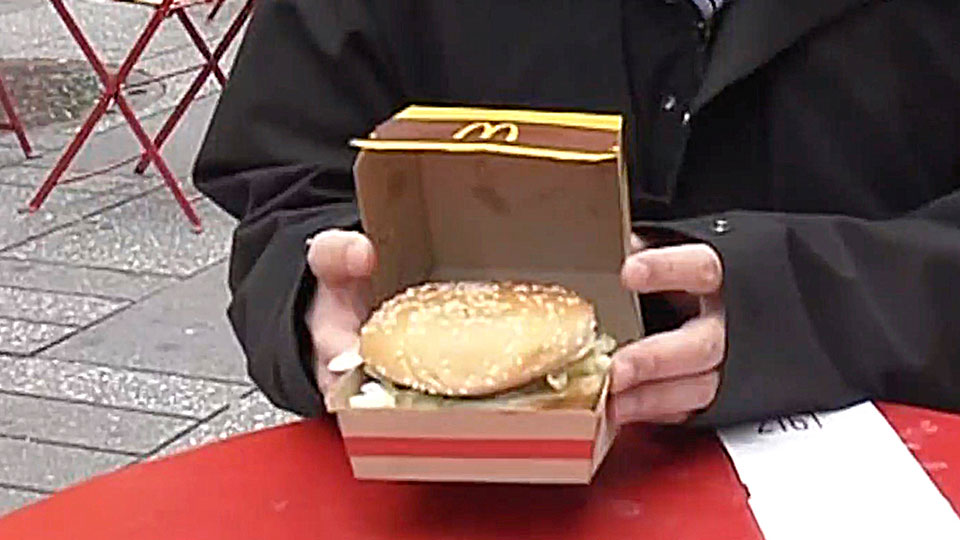The yen has been falling for months, hit by numerous factors including continuing inflation in the US. Now it is hovering at the 154-yen level, its lowest since 1990, after falling close to 155 yen last week.
As a result, the price of things for Japanese traveling overseas has risen to an uncomfortable level, including basics such as food.
An NHK correspondent in New York says he bought this Big Mac for 6 dollars and 52 cents in New York's Times Square. That's about 1,000 yen when calculated at 154 yen per dollar — and twice the price it would be in Japan.

The online reaction was swift. One person said they would take instant miso soup and noodles on a business trip to the US. Another said the weak yen makes overseas travel expensive, so they plan to go on a domestic trip this spring holiday season.
Schools that emphasize education through international exchange are particularly suffering, such as one private high school in Tokyo that sends its students to Hawaii on school trips.
The vice principal showed us cost estimates of a Hawaii trip for second-year students scheduled for October.
The trip cost 280,710 yen per person in 2019. Five years later, it has risen to 448,138 yen, up by more than 160,000 yen.
The school has led trips to Hawaii for more than 10 years, aiming to have its students experience the latest maritime research and unique creatures. But it may change the destination next year due to the weak yen.
The vice principal says it would be a shame to lose valuable opportunities like this. Students look forward to the trip, and the school wants to ponder options.
Longer study abroad plans also affected
Students in Japan who are hoping to study abroad are also mulling changes to their plans due to rising tuition and housing costs caused by the weak yen.
A Tokyo-based company that helps students make arrangements to study overseas told NHK in November the number of inquiries about changing plans had been rising.
Kato Yukari, the vice president of the company, said the cost of studying in Canada for one year was about 2 to 3 million yen excluding travel expenses. But now it costs at least one million yen more.
As a result, inquiries about shortening the period of stay, changing countries, or postponing plans are increasing.
Kato said some students are changing their destination to countries that allow them to work while studying.
Going overseas the metaverse way
As the yen's depreciation makes overseas travel more difficult, a new way of studying abroad has drawn attention. One new method uses the metaverse.
The Philippine island of Cebu has been recreated in the metaverse to give people a simulated online experience of studying abroad.
Users learn English from local teachers, who tell them about things like local fruits and popular sports.
The service operator says some high schools started to use the program during the coronavirus pandemic, and demand is growing.
Kido Wataru, president of the company providing the service, says, "there are schools and parents who have to give up on overseas trips due to the weak yen. We want to offer positive experiences through various initiatives."
